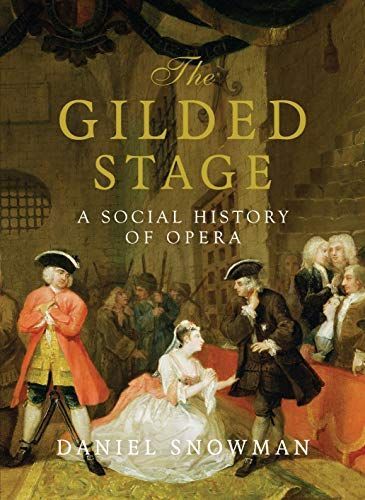
The Gilded Stage A Social History of Opera
From opera's beginnings in the courts of northern Italy, to its spread across Europe and the world, The Gilded Stage explores the world of opera houses and impresarios, monarchs and money makers, artists and audiences. On this operatic Grand Tour, Daniel Snowman leads us through Renaissance Florence and Mantua, the Paris of Louis XIV, Handel's London and the Vienna of the Emperor Joseph II and Mozart.By the nineteenth century, opera was no longer a European monopoly and Daniel Snowman follows Mozart's librettist and Rossini's first Count Almaviva to New York and beyond, catching glimpses of performances alongside the bravado and bawdiness of the American and Australian frontiers, where Gold Rush millionaires flaunted their flamboyant claims to high culture. Towards the end of the century a WASP patron of New York's Metropolitan Opera could watch a French work sung by a Czech, Polish and Italian cast led by a German conductor. Twenty years later, Caruso sang Puccini in Havana and Toscanini performed Wagner in Buenos Aires.Neverthless, even Caruso and Toscanini could scarcely have imagined the global reach of opera in our own times. More opera is performed, financed, seen, heard, filmed and broadcast than ever before, and the world's leading performers are worshipped and paid like pop stars. Yet the art form is widely derided as 'elitist' and parts of the classical recording business appear close to bankruptcy. However, as Daniel Snowman reveals, the world of opera has always known crisis and uncertainty - and the resulting struggles have often proved every bit as dramatic as those portrayed onstage.